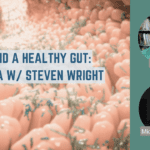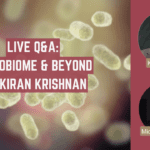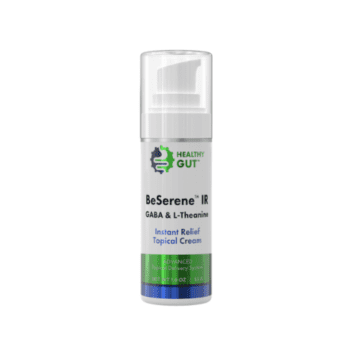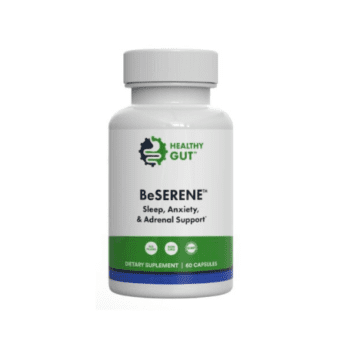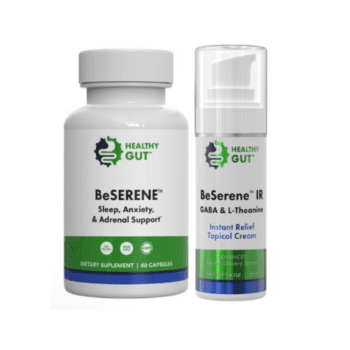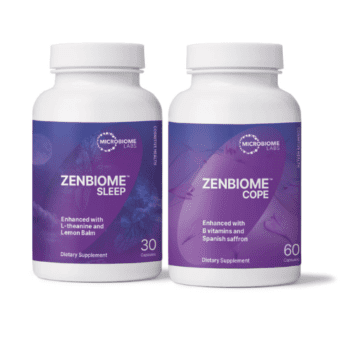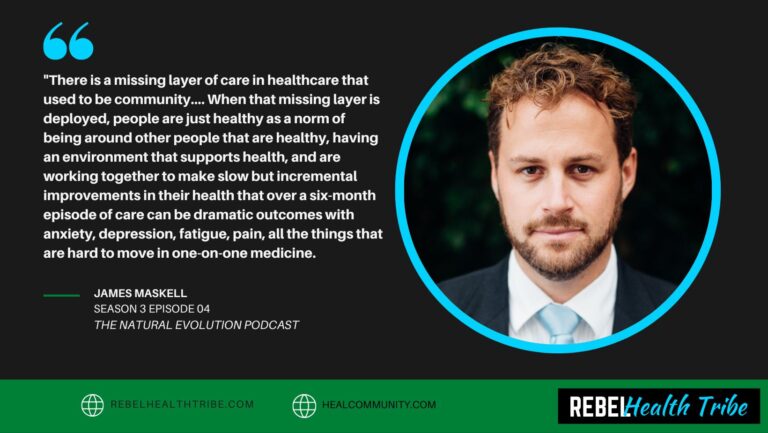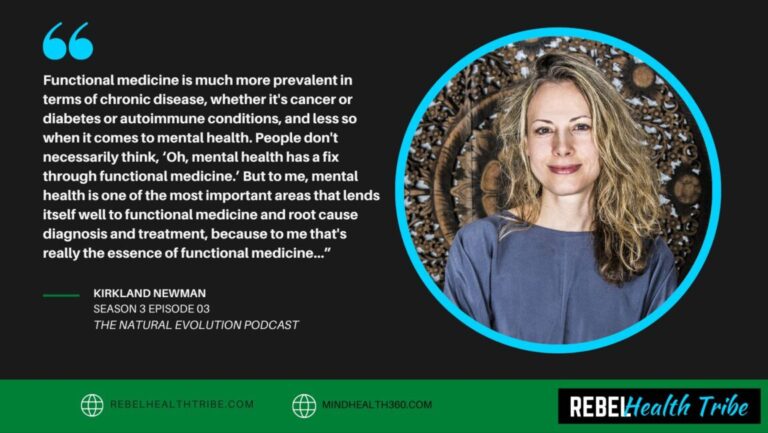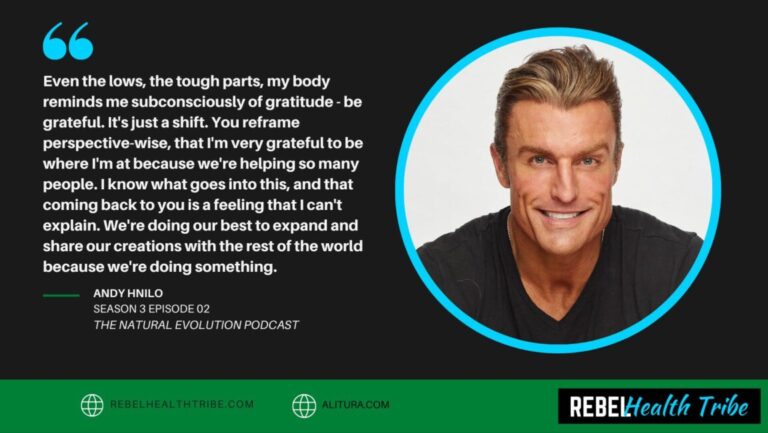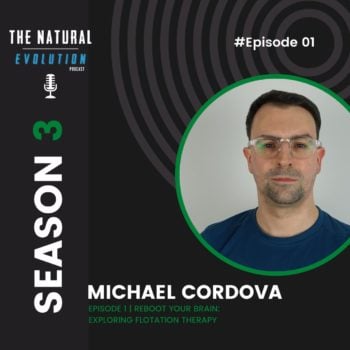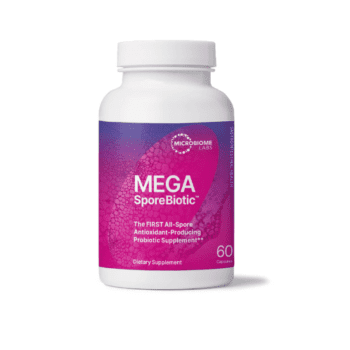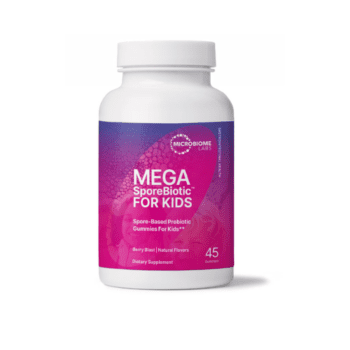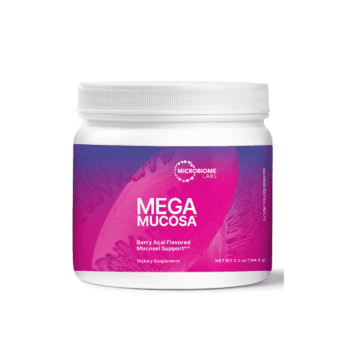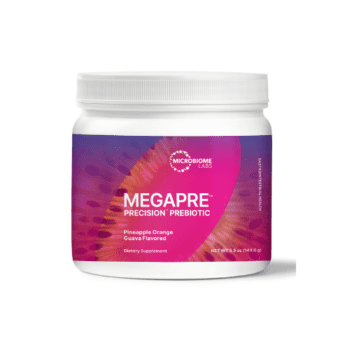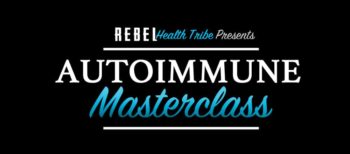
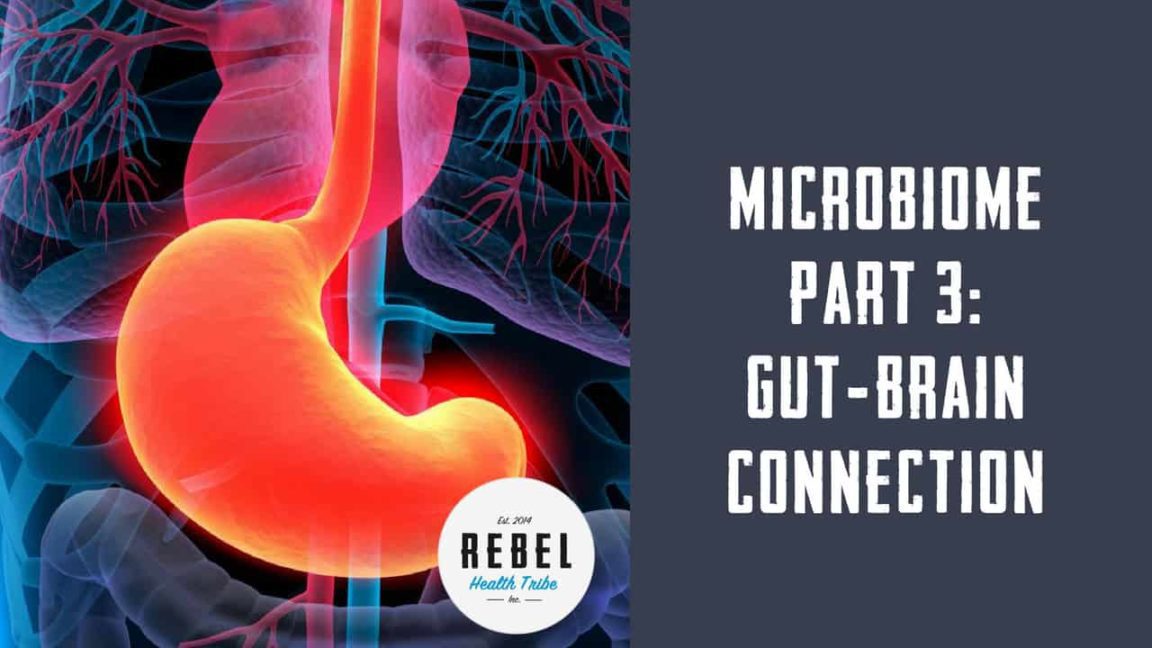
More Posts from
Gut Microbiome & Digestion
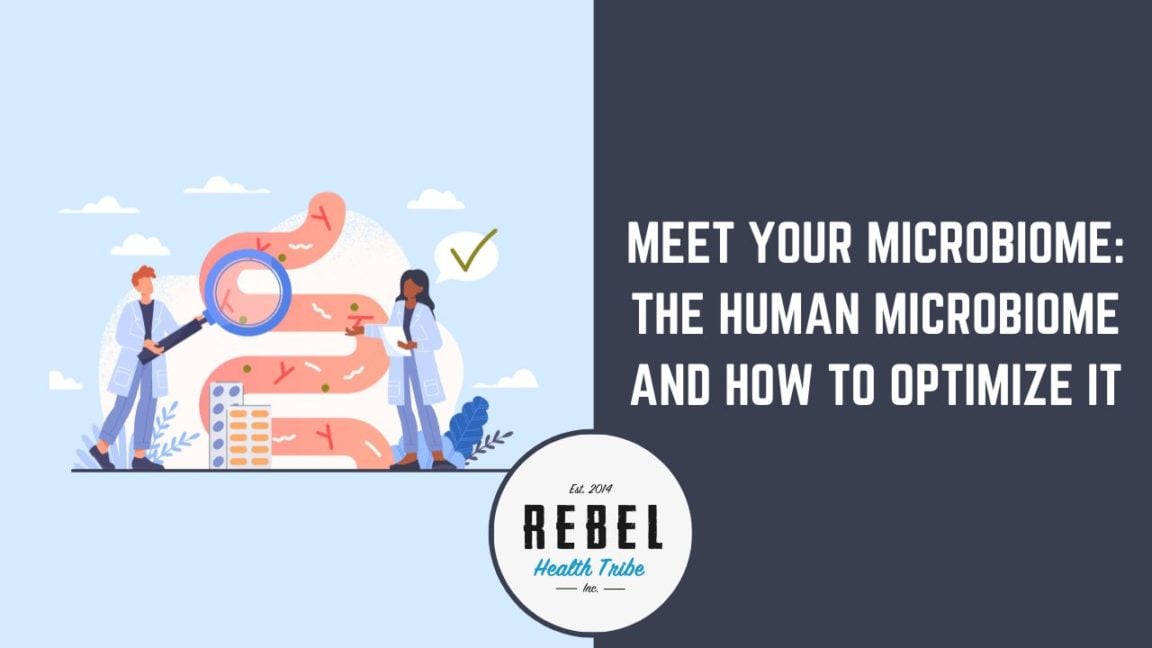
Meet Your Microbiome: The Human Microbiome and How to Optimize It
Meet Your Microbiome: The Human Microbiome and How to Optimize
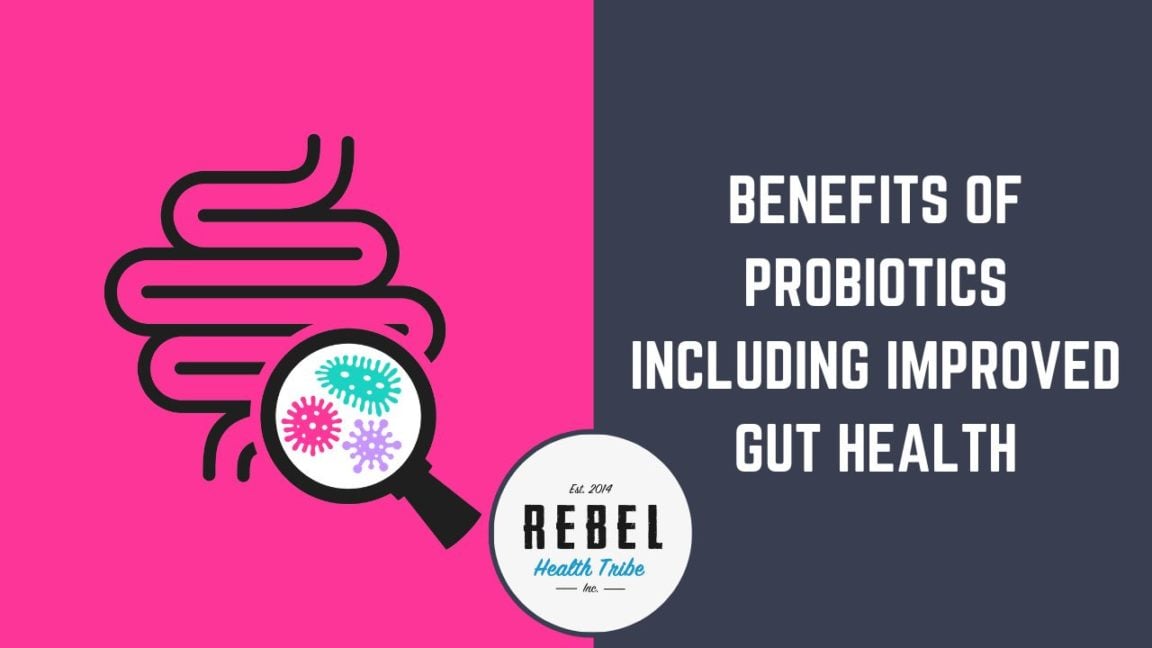
Benefits of Probiotics Including Improved Gut Health
Benefits of Probiotics Including Improved Gut Health “Probiotics” has become
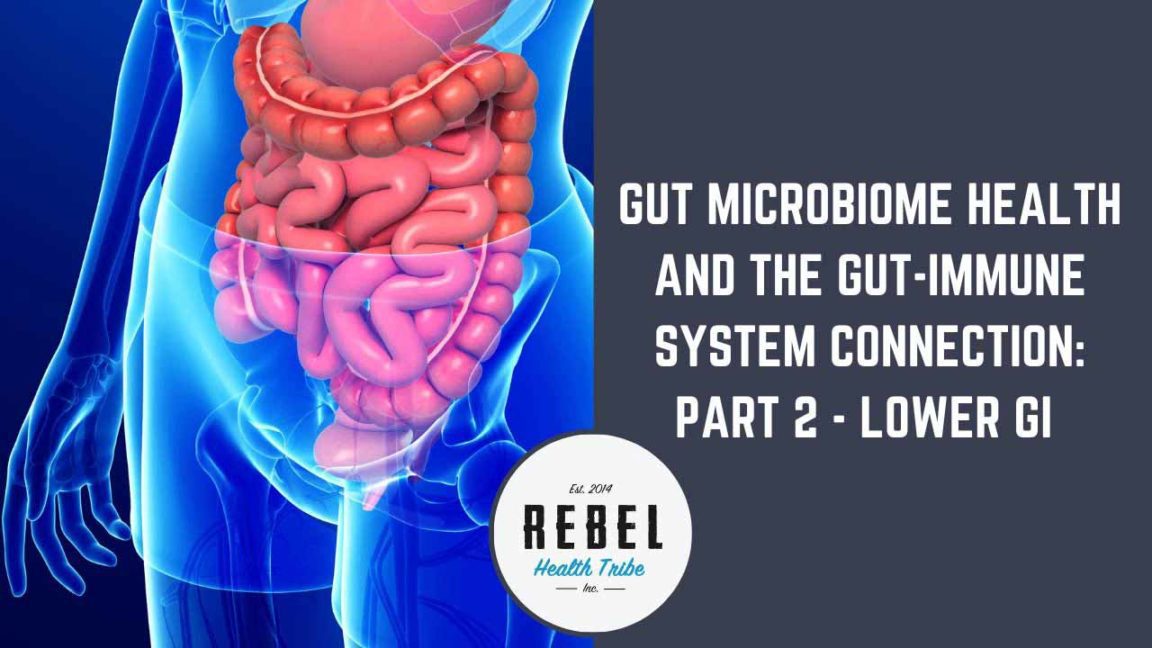
Gut Microbiome Health and the Gut-Immune System Connection: Part 2 Lower GI
Gut Microbiome Health and the Gut-Immune System Connection: Part 2
https://vimeo.com/257039788/5b847dace5
Michael:
All right. We are onto the next subject, and one that often gets overlooked when we’re talking about microbiome, or gut health, or any of those topics, is the link to the brain. There’s a term that you as the reader might have come across in the past. Or somewhere in a book or another series or anything, called gut brain axis. Or the gut brain connection. I think a lot of the understanding of this is relatively new. It’s not something that’s been around a long time. This theory or this concept, but now there’s a lot of research and evidence to back up that our gut and our brain are intricately linked. Before we go further, Kiran, can you shed a little light on what I mean when I say the gut brain access? What does that even mean?
Kiran:
Yeah. That’s a really interesting area, because we now know as you mentioned that the gut and the brain are intimately connected. It’s a two way system, meaning not only does the brain talk to the gut, but it can go in reverse. The gut can talk to the brain. As we know, the gut is controlled by microbes. That means microbes can talk to our brain directly and create thoughts and desires and chemical messengers that make us act a certain way, do certain things, feel a certain way.
From a physiological standpoint, basically what we have is our enteric nervous system. Enteric nervous system is a set of nerves that basically coat the intestinal lining of the intestinal wall, if you will. All the way from the mouth all the way to the bottom. The enteric nervous system is a really, really complex, intricate, highly dense neurological system that connects the gut. And then that enteric nervous system is then connected to something called a vagus nerve. The vagus nerve is the direct connection between the gut and the brain. Again, it’s a two way system. Our microbes can create chemicals, neurotransmitters, peptides, inflammatory chemicals, hormones. All of these things, send it through the enteric nervous system that ends up in the vagus nerve, and then goes directly to the brain. It can impact how we feel and how we behave.
For example, in both the positive and negative ways. In the negative way, things like yeast overgrowth. Yeast produce a lot of things like aldehydes and alcohol derivatives. These things that they produce in the gut will actually get into the enteric nervous system, go up the vagus nerve, into the brain and actually make you feel like you have brain fog and forgetfulness. You’re drunk from the inside, if you will, without all the fun. That’s an example of something that’s negative.
But also another example of something that’s negative is the production of hormones and chemical messengers to make you crave things. If the bacteria or the yeast within your system want you to eat sugar, which is good for them, then they can create chemical messengers that they send directly to your brain to make you crave sugar so that you can feed them. They have that level of control as well on our systems.
Now, the other side is that emotions and anxiety and depression. All of these things are also controlled by the gut in a large part, because the gut produces the vast majority of things like serotonin and dopamine. Serotonin and dopamine balance is really the key to having a good balanced mood. Not dealing with anxiety. Not having depression. Not having behavior disorders. Kids or ASD even, autism spectrum disorders, all of these things are correlated to serotonin and dopamine function. The production of these are actually done by the bacteria in the gut. If those bacteria aren’t healthy and they’re not producing enough, then your body and your brain is not getting enough of these important hormones, which can lead to anxiety, depression and so on. If it’s getting too much, you can even have things like serotonin syndrome, which is another negative thing. It’s all about the balance. In fact, it’s really important to note that the gut is the only organ in the body that can operate completely independent of the brain.
Everything else in your body, your eyes and your heart and your lungs and your pancreas and liver, virtually muscle in your body, every nerve in your body, all is controlled by the brain. That’s so when you go brain dead you’re done. But the gut can operate completely independent of the brain. It’s the second brain, if you will. Another quick coincidence is that…
Michael:
I could keep eating after death?
Kiran:
Yeah, exactly. Your gut will continue to ferment. It will continue to move. It’ll go on. The microbes within your gut will go on and if you’re put in dirt like we should be. Disintegrated.
Michael:
You’ll go into the soil.
Kiran:
They go into the soil and then they’ll show up somewhere else.
Michael:
Find another home.
Kiran:
They’ll find another home and they’ll continue the journey of life without us. We’re just a temporary vessel for them. Interestingly enough, the brain, the average human brain weighs around two and half, three pounds, the amount of microbes you have in your gut collectively weigh about two and half to three pounds. In many ways they are the other brain.
A lot of people will say they’re the second brain, I don’t like thinking of them as the second brain ’cause it sounds inferior to our primary brain. They’re not really inferior. They have so much more control over things than we give them need to.
Michael:
Don’t want to anger the bugs. We’ll call them the …
Kiran:
Exactly, don’t want to piss them off.
Michael:
The second but equal brain.
Kiran:
Or they’ll get mad.
Michael:
Separate but equal brain. Don’t get upset bugs. You mentioned they do produce neurotransmitters and hormones that are identical to the ones that our body produces?
Kiran:
Yeah, absolutely identical. Not only that, there’s some evidence that perhaps our body learned how to produce these hormones from the bacteria themselves. The bacteria were producing this well before we were. We know that bacteria have been around on Earth way longer than humans have and multicellular organisms, by about a billion years. They’ve figured out how to…
Michael:
Only a billion.
Kiran:
Yeah, exactly. And they actually use these things to communicate themselves. You might think, well why is it that they produce things like serotonin and dopamine, they do that as communication messengers between bacteria themselves. It just so happens we’ve brought these guys into our system and we utilize what they can do in order to benefit us. It’s a real beautiful symbiotic relationship where they have these capabilities, we’ve learned to adapt and utilize those capabilities and that now we’re getting to a point where we’re destroying them, so those important capabilities are no longer functioning in our system. Then we need the drugs to help with undo our destruction.
Michael:
Those neurotransmitters and hormones, for those who don’t know, dopamine and serotonin and these substances they make, we were talking yesterday, I was on a recording, we were talking about anandamide. These things control how you feel. If you get a surge of dopamine, you feel really good. If you’re deficient in some of these neurotransmitters and hormones, you feel really crappy.
Kiran:
Yeah. It controls your motivation. It controls how likely are you to wake up in the morning and be productive and have the energy to do what you want to do. And then how well your body feeds off of the reward system. That’s how as humans we learn. We learn through the reward system. Typically, if you do a beneficial behavior and then you get a benefit from it, we learn that that’s a good thing to do and that’s how we teach kids too. They also affect your outlook on life. There have been studies to show that people with healthier microbiomes tend to have a better outlook on life, meaning they are the glass half full people versus the glass half empty people. Your whole perspective can change based on your microbes.
Michael:
That’s amazing. Things like depression and anxiety and even things probably like OCD and some more clinically challenging severe, schizophrenia, I don’t know how many links have actually been shown or proven at this point but from a theoretical standpoint you could probably make a pretty solid argument that almost every single neurological diagnosis or condition out there can be linked, I’m not saying it would be in every one, ’cause there’s obviously other things that can be contribute to those conditions, but can go back to the gut and to the microbes.
Kiran:
Absolutely. In fact, there’s good evidence that even as part of side effects to certain medications. For example, one well known side effect of fluoroquinolone type of antibiotics is anxiety and depression. In fact, psychiatric, a psychiatrist know that very well so they don’t allow their patients to utilize…
Michael:
So like Cipro?
Kiran:
Like Cipro for example.
Michael:
Those are gnarly antibiotics. That class of antibiotics. There’s entire groups that I’ve seen on Facebook and other social media of people who have been pretty destroyed by that category of…
Kiran:
And then ruptured, nerve damage, brain damage, all kinds of crazy stuff. They’re very powerful antibiotics. But they do cause a lot of destruction. Levaquin is the name of the other one. It is well documented, well known, that a side effect of those antibiotics is anxiety and depression. The reason they can cause anxiety and depression is cause they decimate your microbiome. Your microbiome that is no longer producing serotonin and dopamine. That’s direct evidence that the microbiome plays a huge role in the onset of those conditions.
Michael:
That’s fascinating. Something to think about with the food that you’re putting in your mouth can impact how your mood is going to be. Aside from blood sugar issues and other ways that food obviously impacts. Which blood sugar, the way your body responds from a blood sugar standpoint can be linked to microbiome too.
Kiran:
Absolutely.
Michael:
Which we talk about in the metabolism and weight loss episode of microbiome series. We do have a full webinar episode on microbiomes in the microbiome series on the gut brain connection. There will be links around this video and this article to click and check that out. If you want to really dive into this a little bit further, Kiran’s got an awesome presentation put together there. A little bit more elaborate information but the connections there, it’s encouraging that we’re in a really cool point as far as research goes from a medical standpoint because a lot of this, you speak at conferences to doctors all the time. I’m actually shocked that you’re at home. This information is reaching conventional western medicine to an extent. And we’re going to start turning our microscopes and our money in that industry potentially, behind looking into something that’s been there all along and we just didn’t know it.
Kiran:
Yeah. It’s interesting to note for people. One of the things we will talk about in the expanded version of the microbiome series is what are the things you can do about this. It’s good to have the knowledge and understanding connections but solutions are quite important as well. We talk about that. It’s also important to note for people that more and more as I speak at a lot of these conference, we’re learning about more and more associations. We’re coming to learn about holistic dentist association. Holistic nurses associations. For example, dental work can have a lot of impact on your overall health because the mouth microbiome is a very important portion in controlling a lot of your immune system and your emotions and even your heart, how your heart functions and so on. Disruptions to the mouth microbiome can actually be devastating to your overall health.
There are dentists now who are holistic dentists who are, your regular dentist, they obviously gone through dental school and all that and they are board certified. They’ve now have created more of an angle where they’re concerned and cautious about what’s actually going on in the mouth and using more natural compounds and then also using things like probiotics. You’ve got holistic dentists, you’ve got holistic nurses. We have, we found an association for holistic psychiatrists, who use a lot more nutrition in the practice of tryptics in the gut and brain connection. It’s really exciting to note that these things are popping up everywhere and people will have a chance to really approach this in a smarter way.
Michael:
That’s really cool. Is there a oral probiotics that the dentists are using? Like a liquid swish? Or do you use the spores in water? Or what?
Kiran:
We use the spores and in fact, we did our first presentation at the Holistic Dentist Association, which was here in Chicago, the show, their annual show. There’s a couple of different associations. It went amazingly well. They were so receptive. They have been looking for something that can help with when they have to give antibiotics or when they want to improve the microbiome in the mouth or when they want to reduce inflammation of the upper respiratory tract. Interestingly enough, I found out that these holistic dentists are also helping people with their general health issues. Meaning, somebody’s got a standard allopathic doctor and they’re looking for somebody with alternative therapies so they talk to their holistic dentist. Holistic dentist is extremely well educated on some of the nutritional therapies and all that so they’re helping people with things like autoimmune conditions, allergies, all these things. It’s really fascinating. They’re really receptive to the spores because they haven’t quite found a probiotic that seems to do what they want it to do.
Michael:
Cool. We started with gut brain and we ended up in the mouth.
Kiran:
Exactly.
Michael:
Which is right in between the two.
Kiran:
Exactly. It’s on the way.
Michael:
It’s on the way. One time again, if you didn’t catch it, check out the links here for the microbiome series webinars where it’s way expanded information and a lot of the how tos and a recommendations and things that Kiran teaches at these conferences. He’s teaching to our audience here. It’s pretty solid opportunity to be able to learn from where the medical professionals are learning. And you don’t have to be a doctor to sign up. Thanks a lot.
Gut Microbiome & Digestion Products
-
-
-
-
$119.98
ZenBiome™ Sleep is formulated to help clients deal with occasional...
Get Social
Recent Podcasts
Recent Courses
Autoimmune Masterclass 2024
Autoimmune Masterclass brings together 17 of the world’s
Toxicity & Detoxification Masterclass
The toxicity and Detoxification Masterclass covers a wide
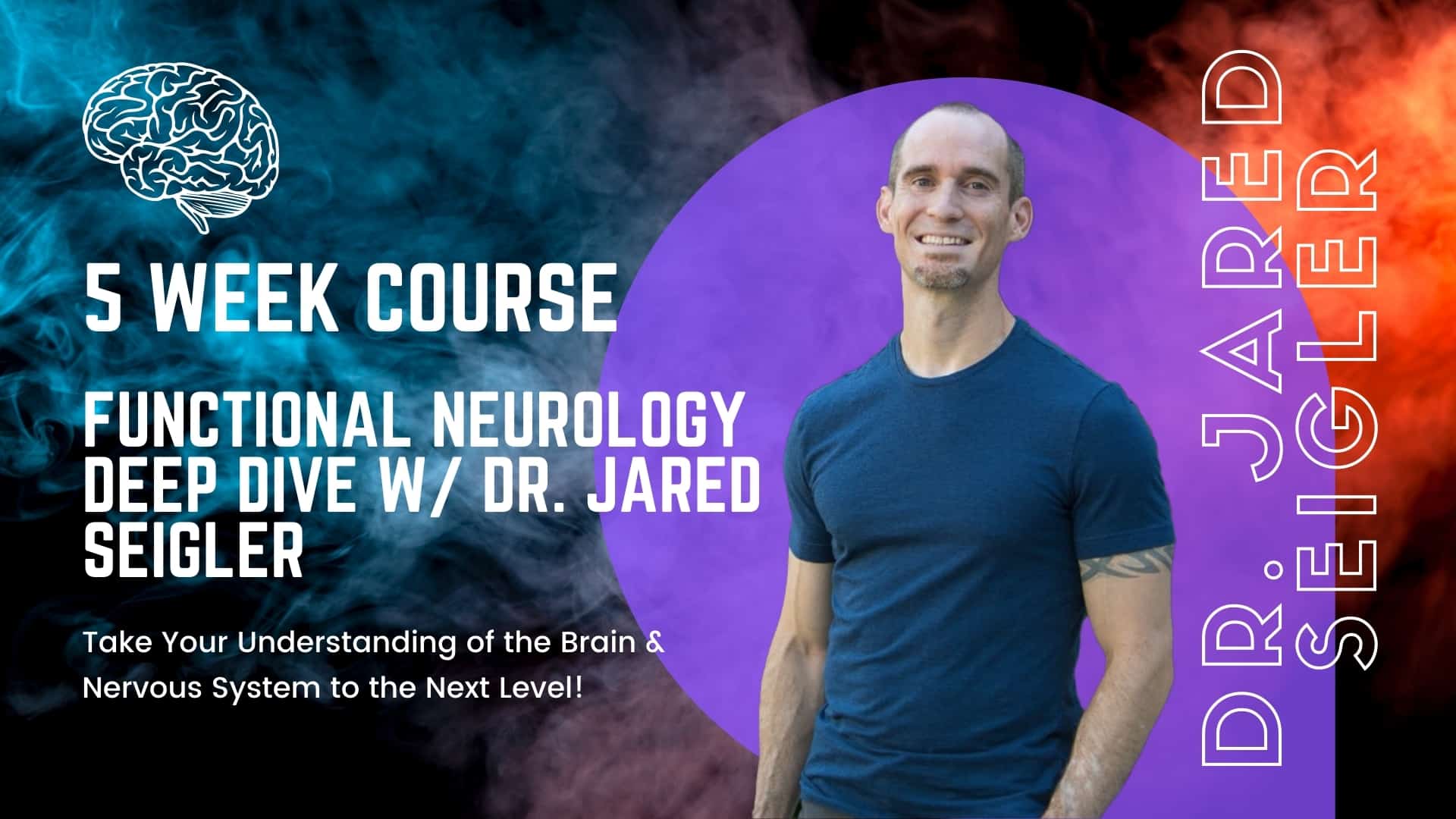
5-Week Functional Neurology w/ Dr. Jared Seigler
Learn how to improve your brain health and
Brain & Nervous System Masterclass
16 Leading Experts Share Cutting-Edge Science, Effective Practices,
Get the RHT Newsletter
Be the first to get access to special offers, new podcasts, courses, products and events from Rebel Health Tribe.
Facebook
Twitter
Pinterest
LinkedIn
Reddit
WhatsApp
Telegram
StumbleUpon
-
MegaSporeBiotic
$59.99 – $176.95MegaSporeBiotic™ is a 100% spore-based, broad-spectrum probiotic shown...
-
MegaSporeBiotic For Kids Gummies
$39.00MegaSporeBiotic™ Gummies are a 100% spore-based proprietary probiotic...
-
MegaMucosa
$59.99MegaMucosa is the first complete mucosal support supplement...
-
MegaPre Prebiotics Powder
$59.99MegaPreBiotic™ is the first Precision Prebiotic™ supplement made...
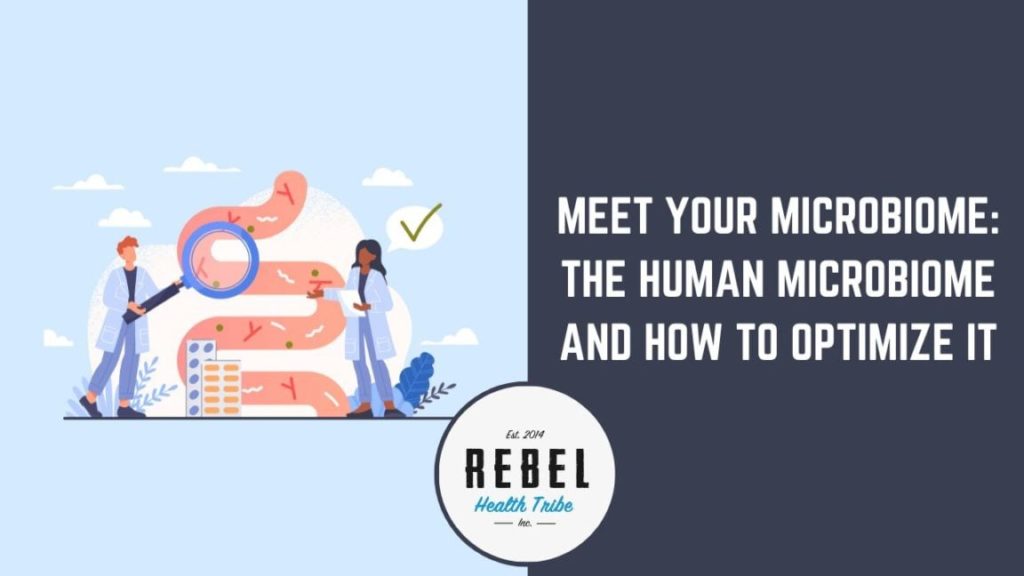
Meet Your Microbiome: The Human Microbiome and How to Optimize It
Meet Your Microbiome: The Human Microbiome and How to Optimize It On and in the average human, there reside approximately
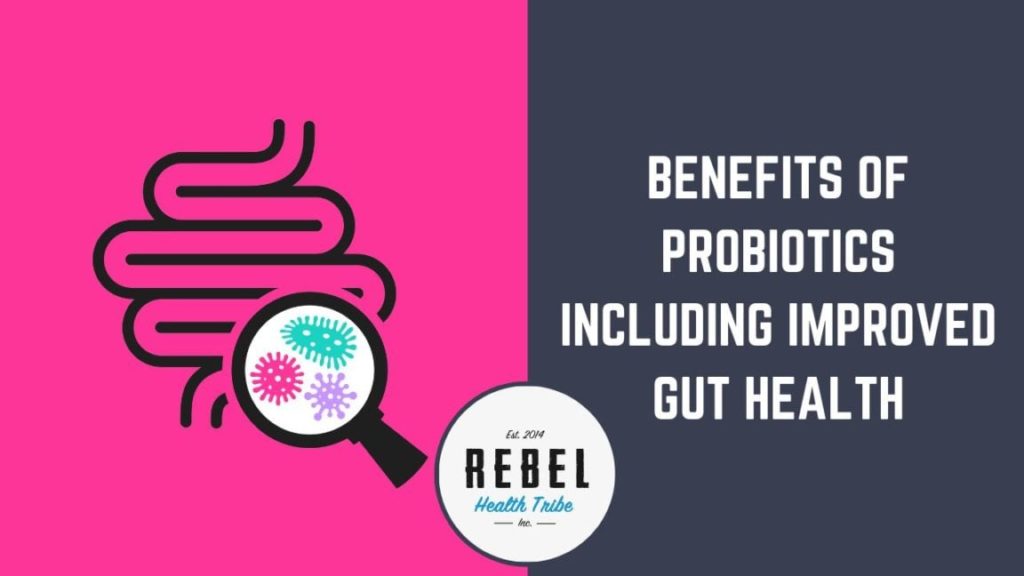
Benefits of Probiotics Including Improved Gut Health
Benefits of Probiotics Including Improved Gut Health “Probiotics” has become quite the buzzword – with countless products and supplements proudly
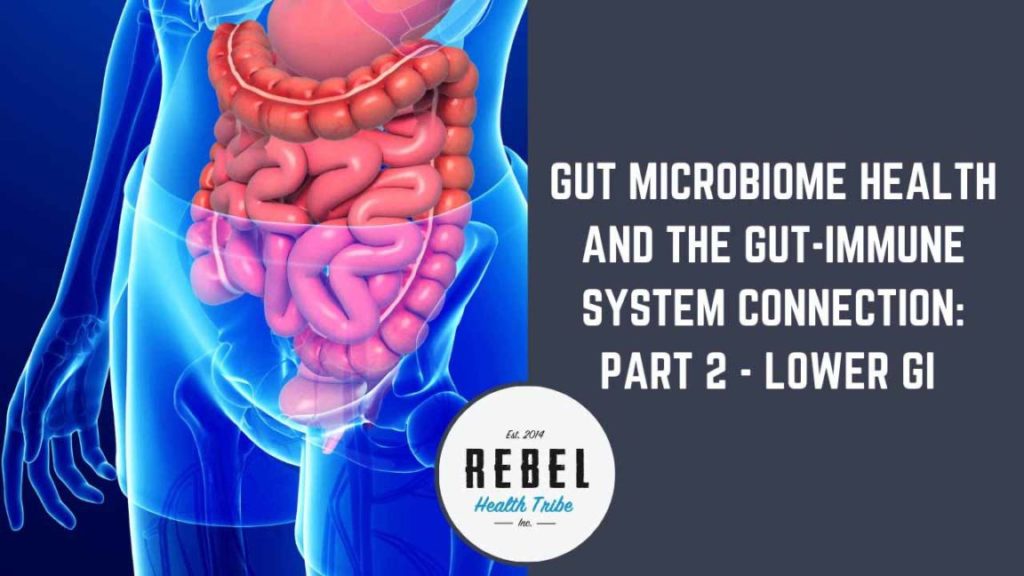
Gut Microbiome Health and the Gut-Immune System Connection: Part 2 Lower GI
Gut Microbiome Health and the Gut-Immune System Connection: Part 2 Lower GI The diverse community of microbes in your digestive
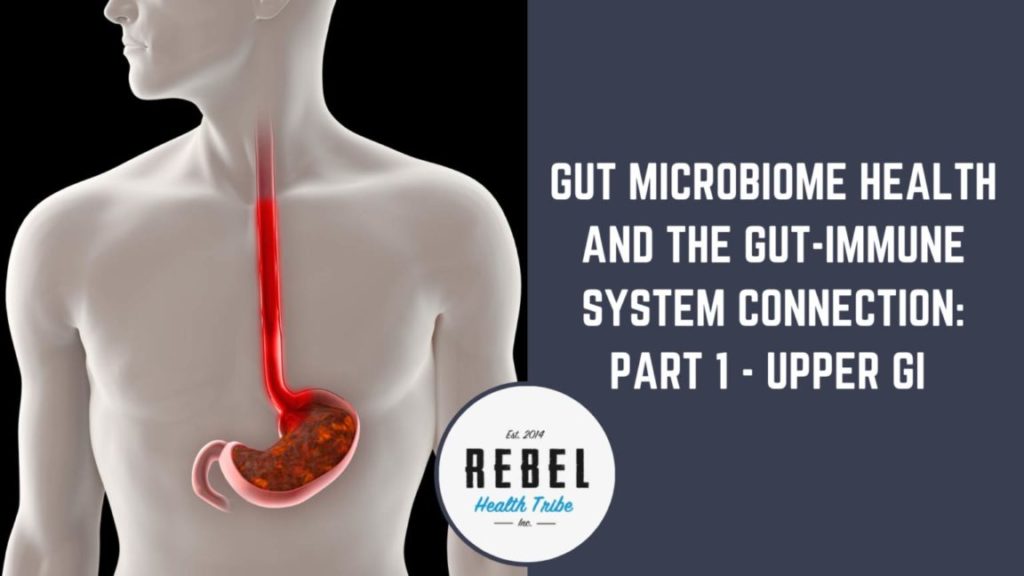
Gut Microbiome Health and the Gut-Immune System Connection: Part 1 Upper GI
Gut Microbiome Health and the Gut-Immune System Connection: Part 1 Upper GI The message is out: gut health is critical


